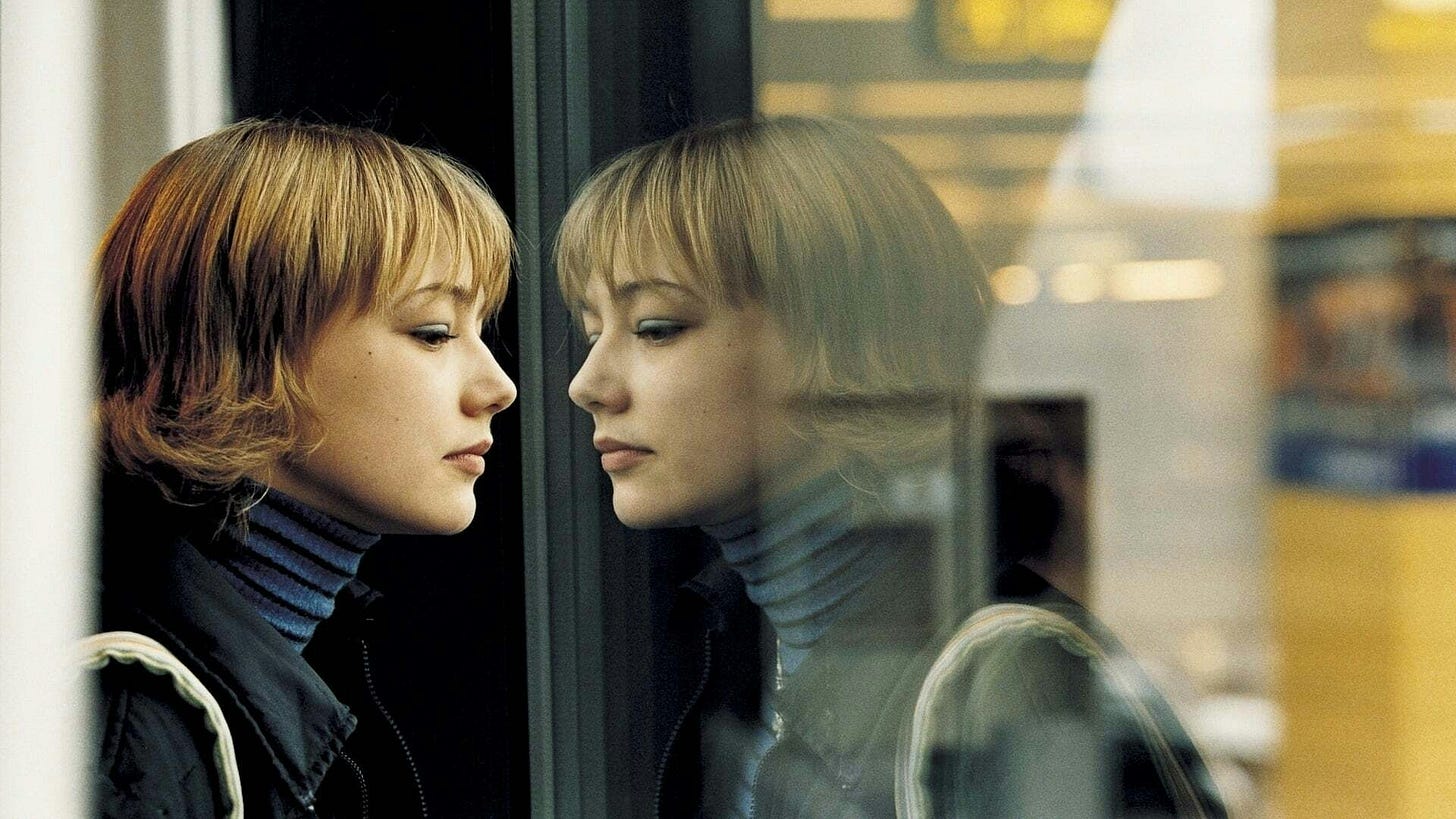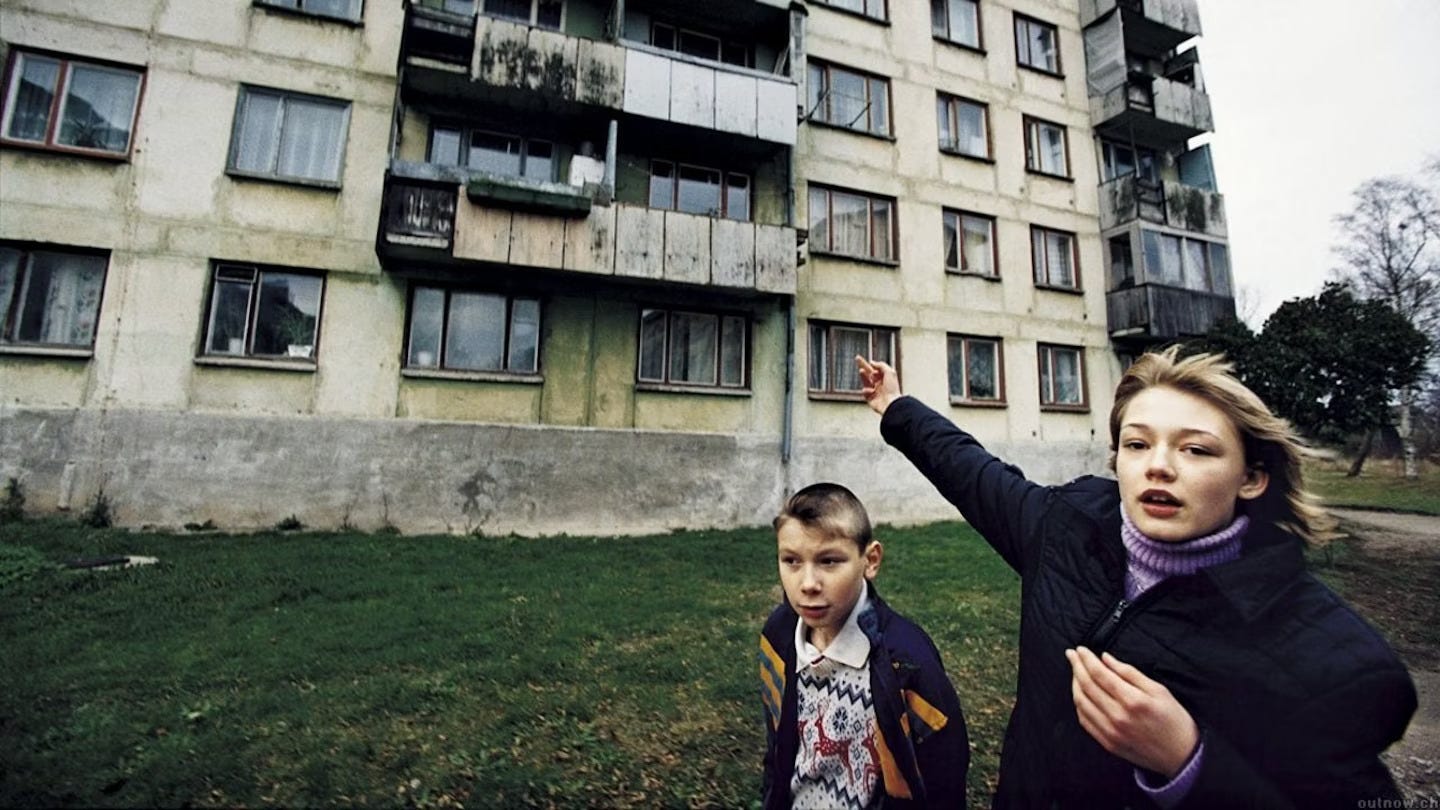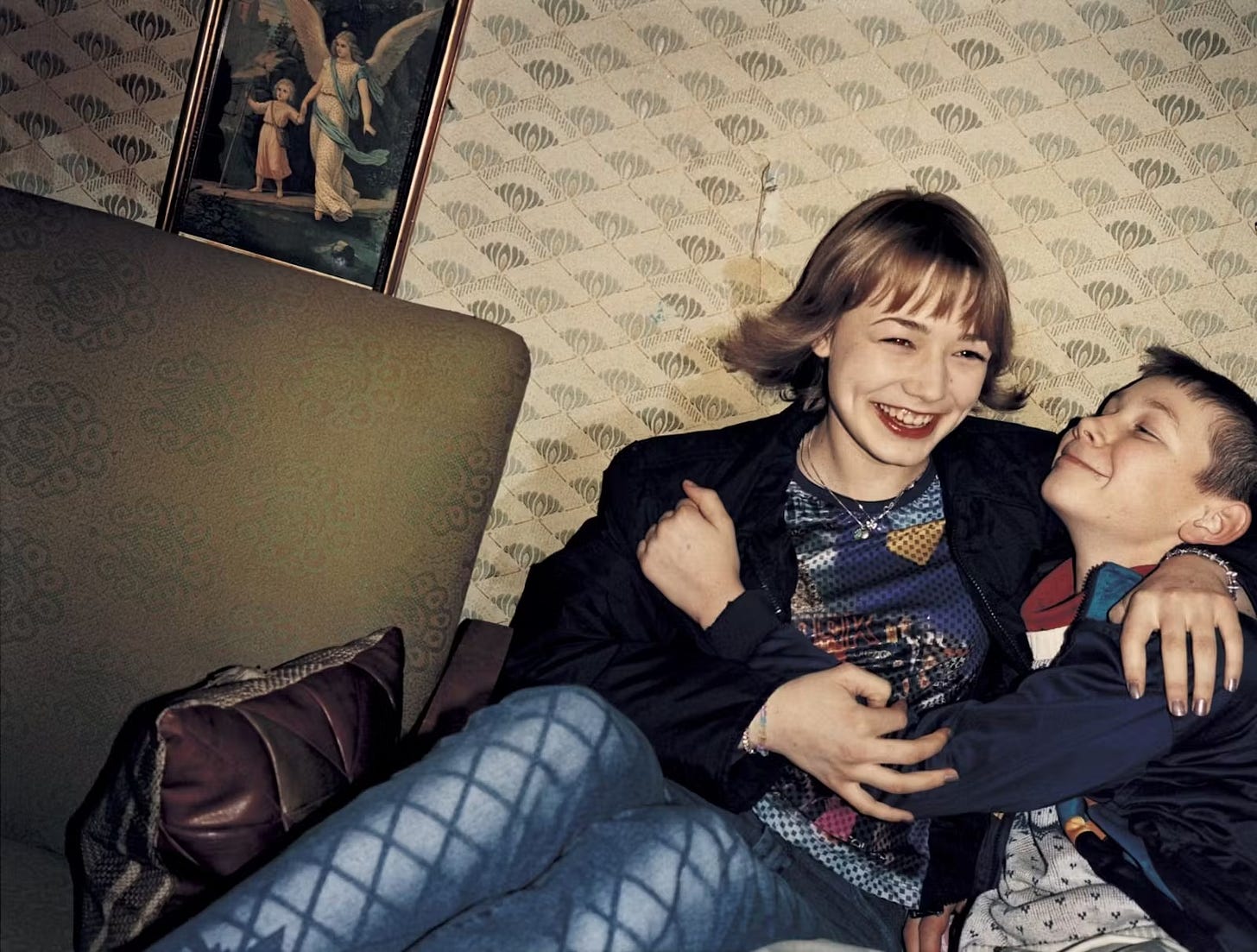Innocence unprotected
A 2003 review of Lilya 4-EVER, Lukas Moodysson’s sober sex-trade tragedy
We’ve failed the future.
Me, you, society, every nation on earth: that’s what Lukas Moodysson’s harrowing, beautiful Lilya 4-Ever says, with stark empathy and no small embrace of Dickensian melodrama. Moodysson dares to point that out, with love and rage, and the attentive, lyrical gift of the reformed poet that he is. Following the then-thirty-four-year-old writer-director’s brilliant Show Me Love, one of the best films about puppy love, and Together, a tender Renoiresque satire of Swedish communal life in the 1970s, it’s an earnest tragedy that means to change the world.
Lilya is 16. A face filled with sunshine. She lives in a nameless suburb of a faceless satellite of the former Soviet Union. Her mother and her mother’s lover are leaving for America. They promise to take her. But they leave her behind, with promises she’ll be sent for. No letters. No money. Lilya’s aunt throws her out of the family flat, into a decrepit apartment an old man’s just died in. Her only friend is an ill-kempt 11-year-old, Volodya, despised by his father as a “runt,” kicked around, left in the cold.
They play at children’s games. “A golden future awaits you,” a teacher tells Lilya, handing her a test. She’s done badly, she’s confused, her face shows. “I was kidding,” the casually cruel instructor says. Meanwhile, her best female friend turns tricks at a nearby disco that she and Lilya dress up for. The friend’s father finds her fistful of bills. She tells him the money is Lilya’s. Everyone in the housing estate presumes she’s a “slut.” She meets Andrei. A handsome young man, kind, with promises of a new life in Sweden. She’s flown to Malmö (Moodysson’s hometown), dreaming of the West. Within moments of leaving the airport, she knows: she’s been sold. Her dreams cannot hold against malign mediocrities, the median atrocity of men who want young flesh.
Lilya 4-Ever is beautiful and sorrowful and tragic, as inhabited as pages of Zola. Forget the chemical despoliation of Soviet-occupied regions like Latvia and Estonia. Forget the euphemism “collateral damage.” This is the real thing. As Lilya, Oksana Akinshina is girlish innocence, with brown-eyed angel radiance, a downturned, full-lipped mouth, a bump in her upturned nose. She bears the sort of child’s charm easily taken as beauty. But her luminous performance is many, many meters beyond an Amanda Bynes, a Hilary Duff, an Olsen twin from the wrong side of the tracks. Her exquisite, freckle-faced radiance makes her an anti-Britney—yet Lilya is thrilled when she hears that she shares a birthday with Miss Spears.
Unrelenting but hardly didactic, working with a dreamy particularity, Moodysson’s shrewd and skillful construction makes it simple: murder one child, you murder the world. Kill a dream? Forget the future.
A moment. When Lilya realizes her mother is driving away without her, she runs from the apartment where she’s been the sullen teen, out into the cold and damp. As the car wheels away, she cries out, “Mama!” Your heart stops, your breath stops. Moodysson cuts to an image in slowed motion as the bare-kneed girl slides in the tarry mud, she’s splattered, befouled. A dog enters the frame, licks its uncompromising love onto her ear. I’ve seen “Lilya” three times and every time, that scene’s a killer. There are predecessors to this simple story, notably two films by Robert Bresson.
“Mouchette” is another movie that asks, “Why would a child want to die?” and Moodysson nods toward that film with an amusement-park-bumper-car ride in Lilya. More to point may be Au hasard, Balthasar, the story of a punished donkey who stumbles dumbly toward an escape from a cruel world in that film’s final frames.
Working in Russian, a language he doesn’t speak, Moodysson remains a daring, pitying filmmaker. The cinematography is luminous, and he continues to work with a fluency of economical editing and fluent handheld camerawork that cuts to an instant’s flutter of emotion. He’s willing to be as bold as James Cameron in Titanic, yet in all three of his features so far, the father of two has demonstrated an uncommon identification with teenagers. This glowing portrait of guilelessness and naiveté turned callow is not a wallow; Moodysson shares none of Harmony Korine’s esteeming of picturesque squalor. You see the hope on faces. The fear.



